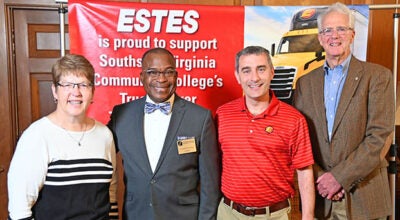County’s revenue holding steady
Published 2:34 pm Wednesday, May 27, 2020
|
Getting your Trinity Audio player ready...
|
With COVID-19 impacting localities across the commonwealth, Charlotte County is no different when it comes to seeing a decrease in revenue from local sales tax following the closure of many restaurants and businesses after Gov. Ralph Northam’s executive order in March.
County Treasurer Patricia Berkeley said that she believes the county will see a decrease, but for right now, things are steady.
“I have been monitoring the revenue various ways trying to get an idea on the impact COVID-19 will have on the locality, and it’s a constant moving target,”
Berkeley said. “I am specifically looking at the local taxes and other local revenue that we receive regularly.”
Berkeley is estimating revenue to decrease by 5%.
“With the state and federal government making changes, there’s no way to have an exact figure on how much things will change,” she said.
During the months of February to April and August to October is when the county collects the majority of its revenue, and according to Berkeley, when COVID-19 started impacting Virginia in March, her office had to pause collections and make changes to the collection policy.
“We did make changes and started back our collections efforts, but differently,” Berkeley said. “Until Virginia is opened back up fully, we will not know just what will happen with the revenue.”
According to Berkeley, the county budgeted $623,479 for local sale tax revenue in 2019. For FY 2020, that amount is $625,855.
In January, the Charlotte County Board of Supervisors (BOS) unanimously voted to adopt a resolution in support of a 1% sales tax increase that would help fund school projects.
According to County Administrator Dan Witt, the tax would be a user tax and does not negatively impact low- and middle-income persons and has the potential to lessen the tax burden by bringing in an estimated $700,000 in additional revenue to the county.
According to Witt, in July, the 1% increase will be requested to be added as a referendum to the November ballot.
Witt said if the citizens approve the referendum in November, the BOS would advertise and hold a public hearing to adopt an ordinance for the sales tax, possibly in December.
If citizens vote yes on the referendum, the 1% sales tax could begin July 2021.
“The taxpayers will have the final say,” Witt said.
Witt further said the 1% tax to help fund school projects would go away once the debt service is paid off or once the projects are completed.
“I don’t know if this type of legislation can be used for existing debt service for schools or if it is only for new projects,” Witt comment.
The sales tax, if approved, would be placed on items such as beer, wine, cigarettes, and prepared foods.
“Medicine and food off the shelf would not be taxed,” Witt said.



